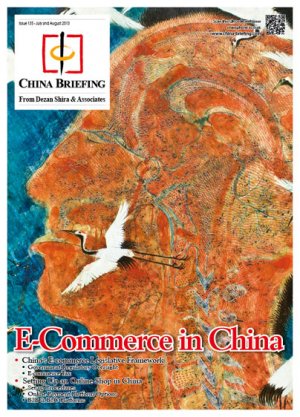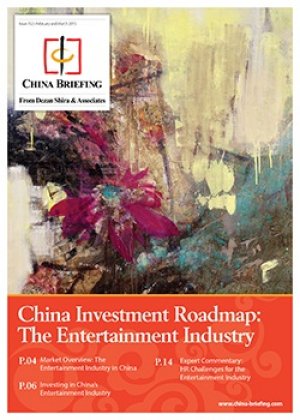The Strategic Reasons Behind Recent China MNC Closures
A number of high-profile foreign investors have announced office and factory closures in China, while at the same time “unfriendly” barriers to certain Western hi-tech industries, and most notably software and IT have been announced. While the media often portrays this as symptomatic of problems in China, due to a “slowing economy” and “unfriendly business practices”, my view is that these are normal occurrences in the typical life of a multinational company. I do not believe, with one or two obvious exceptions, that they represent a trend of a “bad China” or a country where foreign investors are generally and increasingly having a tough time, one or two specific sectors excluded.
In actual fact, China realized the second highest volume of Foreign Direct Investment in the world last year, according to the World Investment Report 2014, produced by the Geneva-based UN Conference on Trade and Development (UNCTAD), which stated that FDI was a rising trend that would continue. So the bigger picture doesn’t support China as being FDI unfriendly. This means that the reasons for high-profile China retractions and closures must instead be related to very specific cases or strategic decisions due to changing commercial circumstances. Let us review this by taking a look at some of these cases:
- Yahoo To Close Beijing Offices
Dealing with China and the internet, especially as a foreign investor was always going to be a tough call. Its interesting to note Yahoo’s facility was for “R&D”, which demonstrates a commitment to look at China, rather than invest long term and with big bucks. Given China’s increasingly strong approach to the internet, the Great Firewall, foreign software Apps and a reluctance to lose any control of its management, it is hardly surprising that Yahoo has decided to concentrate on “other markets.”
Reason for Pull-Out: A market sector that remains off-limits to FDI.
- Microsoft to Close Two China Factories
Microsoft is a big name, but this has more to do with a global acquisition than any China slowdown. Purchasing Nokia gave Microsoft more facilities than it needed in China, and Nokia’s business plan needed serious attention. With Nokia’s products failing in China,the time was ripe to consolidate. The opening of a factory in Vietnam is only part of the story, but one which also involves the China-ASEAN Free Trade Agreement allowing cheaper Vietnamese-made products to be imported duty free into China. That’s just commercial sense.
Reason for Pull-Out: An acquisition leading to over-capacity issues and a re-structuring to integrate ASEAN production into future China sales.
- Adobe To Close China Offices
Adobe closed their R&D center in China recently, yet retained their sales offices. This means that a long-term look at getting their product right for the China market failed due to three reasons: intense competition from local software companies, an inability to leverage brand awareness into sales revenue – the products were intensively pirated and expected for free by consumers – and an increasingly hostile approach by China to foreign software manufacturers.
Reason for Pull-Out: Piracy, a lack of sales enforcement infrastructure, and government reluctance to accept popular foreign software into the local market.
- Adidas To Close China Factory
Nice headline, but it didn’t mean that Adidas pulled out of China. Instead of attempting to run their own factory, they moved the entire production mechanism to their suppliers, of which they already had 300. Adidas did not re-open their facility elsewhere, suggesting they remodelled their business plan and found it more efficient to monitor suppliers than actually self-produce.
Reason for Pull-Out: Amending the business model to put more responsibility on Chinese suppliers, and cut costs.
- Panasonic To Close China Factory
In a highly competitive global market in TVs, Panasonic retrenched from China. But they also closed down a factory in Mexico, meaning their corporate restructuring of this particular business unit was related to global problems, and not specifically Chinese ones. Panasonic TVs now sold in China are manufactured in Malaysia, yet still include component parts sourced in China.
Reason for Pull-Out: Global competition issues
These five cases tell us a number of key issues when it comes to China:
Your Product Needs to be Politically Neutral
It is well known that the Chinese government has becoming increasingly wary of allowing foreign interests within its internet or software sectors. The reasons for this range from security concerns to exercising full control, but at least these are well known. Any company that is involved in these industries is going to face a tough time in China. However, the issues to be faced are well documented. Yahoo and Adobe failed in part due to a lack of perceived political risk, yet it is interesting to note both still maintain a small presence. The lesson? When hoping to sell in China, one’s products need to be politically neutral. Software and Internet products are not.
This trend, which again for the most part has been predictable, can be seen to be having real teeth as China’s Banking Regulator has just imposed software restrictions on foreign suppliers.
The above advice concerning “product political neutrality” in China goes hand in hand with the new regulations the Chinese banking regulator has announced concerning the use of foreign software. In short, these regulations dictate that the source code for all software shall be provided to government regulators, that encryption will be done in accordance with Chinese encryption standards – meaning that the Chinese authorities will be able to break all encryption schemes – and that providers of both software and hardware must conduct part of their R&D in China. Understandably, the US and EU are upset with this, although the writing has been on the political wall in China for some time. In brutal language, foreign investors in these markets are going to find it hard in China. In which case, why not try the Indian market? It is more friendly and definitely doesn’t want to be buying Chinese products either.
ASEAN Alternatives
The Nokia and Panasonic cases show that integrating cheaper ASEAN production into your China business model has already started. Those decisions were purely economic driven, and both retain a key interest in selling to China. Closures? Yes. A Pullback from China? No.
ASEAN wages are on average a good 30 percent of those payable in China. At the same time, China is developing a large consumer market. The cases show that the MNC case for moving part of the production capacity required to service the upcoming Chinese demand is already taking hold. The Chinese consumer doesn’t really care if the component parts in their next new smartphone are sourced from Ho Chi Minh City, the backstreets of Bangkok, or Kuala Lumpur’s free trade zones and assembled in Shenzhen. They just care about the deliverable price. This trend is the one to watch – and be part of.
Do You Need to Self-manufacture?
The Adidas case is interesting. It is an obvious route to take – sell to China by setting up a factory there. Yet Adidas worked out that their suppliers could make products better than they could. Sometimes, brand ownership and protection is more potent than manufacturing, and Adidas were smart to recognize that. Their brand is still sold all over China.
I have no doubt that much will be said about the Yahoo closure – it is a major brand. Yet in hindsight, it was an obvious candidate to fail given the current Chinese political issues with the internet and foreign software. It remains a conundrum that while China needs foreign software R&D, once a foreign-owned product becomes too successful, and is integrated into computers mass sold across China, the government gets nervous. This suggests the way ahead in this industry is to partner with a Chinese software company and jointly design programs if you want to reach that mass market. In fact, the Chinese rules concerning foreign software development state just that. They want the encryption data, and they also want the R&D. Foreign software investors need to get used to the fact that the Chinese government dictate the rules in their own country, and that this doesn’t actually mean there is no scope to make any money. Software JVs are the way ahead in this market.
This market sector aside, there is really very little in the above stories that suggest anything especially untoward is going on in China as regards FDI or the ability for foreign investment to do well. Political risk has long been an issue in China, and it is wise to stick to products with mass appeal yet without any political risk.
For every company that shutters in China, another two or three will enter the market, which is one reason why China continues to attract huge volumes of foreign investment. Mainland China attracted US$128 billion in FDI in 2014, while Hong Kong garnered a further US$111, according to UNCTAD. These are huge amounts. And while names such as Yahoo, Microsoft and Adode may be highly visible brands, their woes do not mean that other sellers of product to China have to carry the same problems.
Dezan Shira & Associates’ China offices, which include operations in Beijing, Dalian, Guangzhou, Hangzhou, Ningbo, Qingdao, Shanghai, Shenzhen, Suzhou, Tianjin and Zhongshan, deal with thousands of enquiries concerning foreign direct investment every year. In this first quarter to date, we have noticed FDI in China is up, by a factor of 15 percent over 2014. Some of that is increasing market share, but at least 70 percent is new-to-China business – with nearly all looking to sell products to China.
The firm has, since 1992, developed a huge amount of intelligence and expertise in dealing with FDI into China, and we have shared this with our readers over the years, not just via this online portal but also through our valuable China Briefing magazine portfolio. Recent issues that deal with selling to China include:
 Selling to China
Selling to China
In this issue of China Briefing Magazine, we demystify some complexities of conducting business in China by introducing the main certification requirements for importing goods into the country; the basics of setting up a representative office; as well as the structure and culture of State-owned enterprise in China. Finally, we also summarize some of the export incentives available in several key Western countries.
We have also, over the past few months, devoted issues to specific industry sectors in China as follows. These industries welcome foreign investment and are key areas of opportunity into the country:
China’s Entertainment Industry
In this edition of China Briefing, we review China’s entertainment industry, identifying where the greatest opportunities are to be found and why. We also detail some of the most important issues for foreign investors to be aware of, including legal, regulatory, and tax considerations specific to the industry, and provide an inside analysis of the sector’s unique HR & payroll challenges – such as sportsmen or musicians earning money when on tours.
 China’s Medical Device Industry
China’s Medical Device Industry
As China’s population ages, opportunities in the Medical Device industry are growing. In this issue of China Briefing, we present a roadmap for investing in China’s medical device industry, from initial market research, to establishing a manufacturing or trading company in China, to obtaining the licenses needed to make or distribute your products.
 China’s Retail Industry
China’s Retail Industry
In this edition of China Briefing, we provide an overview of the retail industry in China and the procedures for setting up a retail shop, focusing specifically on brick-and-mortar physical retail stores. Further, we provide insights on the talent landscape in the retail industry, as well as tips for recruiting full and part-time retail personnel in China.
 E-Commerce in China
E-Commerce in China
In this issue of China Briefing Magazine, we cover the current laws pertinent to the e-commerce industry in China, as well as introduce the steps involved in setting up an online shop in the country in order to help provide foreign investors with an overview of the e-commerce landscape in China.
While we cannot cover all industry bases across China, we do provide updates on all industry sectors open to foreign investors in the country. Using the search function elsewhere on this page may help you find valuable resources. In addition, getting additional industry specific licenses can also require technical legal assistance in China. To that end, we dealt with the subject of obtaining specific industry licenses in China, in this issue of China Briefing here:
 Industry Specific Licenses and Certifications in China
Industry Specific Licenses and Certifications in China
In this issue of China Briefing, we provide an overview of the licensing schemes for industrial products; food production, distribution and catering services; and advertising. We also introduce two important types of certification in China: the CCC and the China Energy Label (CEL). This issue will provide you with an understanding of the requirements for selling your products or services in China.
As can be seen, certain industries in China are prone to semi-official government sanctions, while in terms of closure, many of the MNC shutdowns we have seen are actually a by-product of global restructuring than any specific issues with the China market per se. As has been noted elsewhere, China’s middle class consumer base is expected to reach some 600 million by 2020, allowing plenty of opportunities for foreign investors to get their product to market – as well as foreign companies who develop and provide anything to do with supply chain development. All are needed and welcome in China. The news is not about why certain foreign companies are pulling out of China, or the tech industries that are finding it hard to get in – the real story is about the new companies coming in and crucially, giving China – and its government – what it wants.
|
Chris can be followed on Twitter at @CDE_Asia. Stay up to date with the latest business and investment trends in Asia by subscribing to our complimentary update service featuring news, commentary and regulatory insight.
|
- Previous Article China & Asian Human Resources – Sharing Talent Across Borders
- Next Article Tax Benefits of Changing from an RO to a WFOE

























